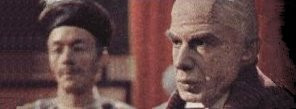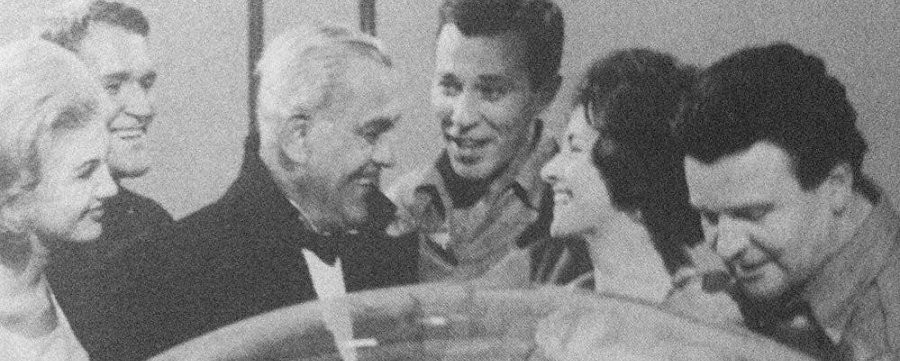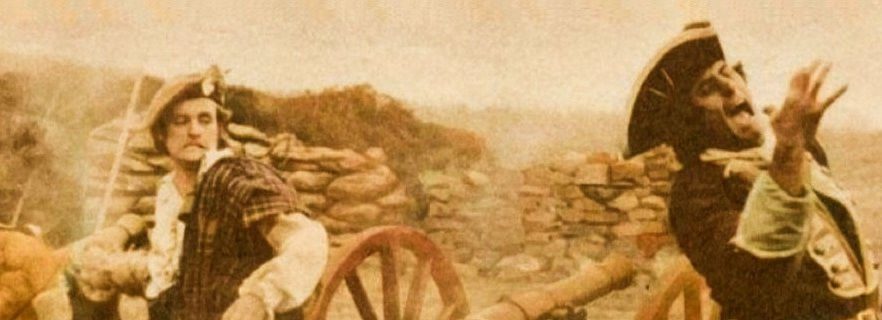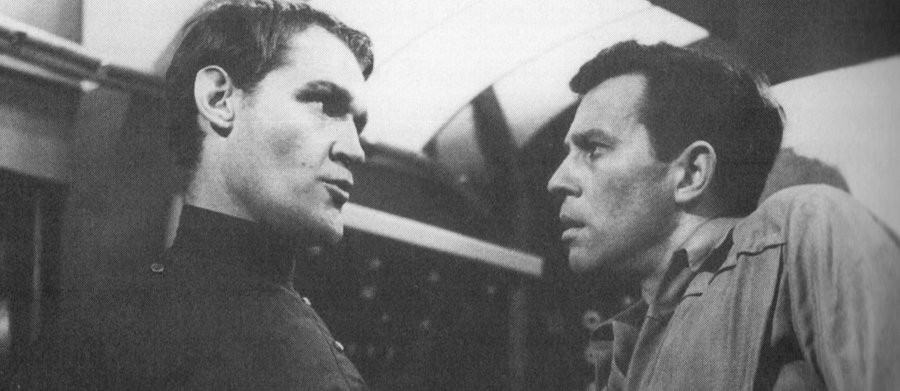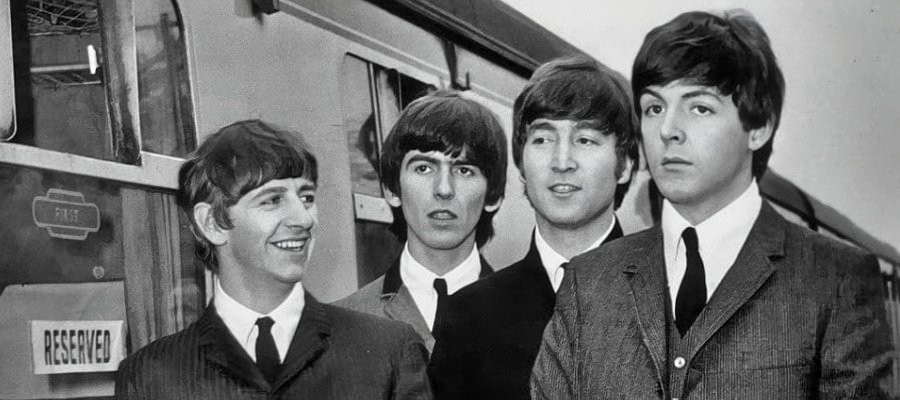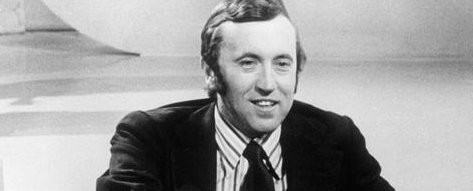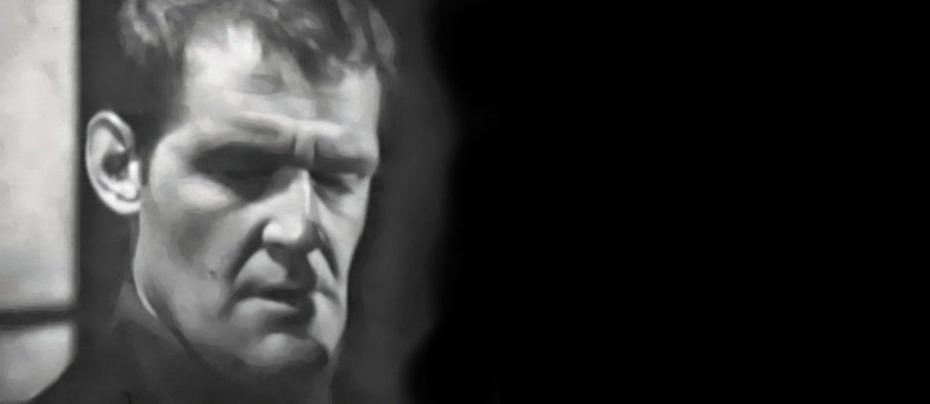
The Dark Number
1966 - United Kingdom“You're asking me to open a grave!”
Crimes the police know nothing about - no body, no weapon, no motive, no clues. They are called the 'dark number' and that was the premise for this BBC thriller series which debuted on BBC 2 at 9.50pm on Saturday 31 December 1966.
The series was created by the Scottish writer Edward Boyd (1916-1989) who had previously created The Odd Man and The Corridor People for ITV. Boyd had moved into television after leaving the Glasgow Unity Theatre to write for BBC radio. In 1966 his radio thriller The Same River Twice, Gordon Jackson played Johnny Maxen, a man who returns to Glasgow for the first time after his estranged wife goes missing. The eight-part radio play ran from 2 October to 20 November but even before it had broadcast its first episode it had been commissioned as a television series.

Now titled The Dark Number, for the part of Maxen, the producers wanted an actor with more viewer appeal than Gordon Jackson who had himself enjoyed a hitherto prolific television career but was still five years away from television immortality as Mr Hudson, the authoritarian Scottish butler of the Bellamy household in the multi-award winning international success that was Upstairs Downstairs.
Cut down from its original eight parts to just five episodes, location filming took place in and around Glasgow. The Radio Times set up the story for its readers with the following introduction:
‘"You're asking me to open a grave," says Johnny Maxen when his mother-in-law calls him back to Glasgow to search for his estranged wife Julia. Johnny didn't want to come back: he has left a good job in Paris. Nor is he especially welcome: his one-time friends tell him to go away. But Johnny is obstinate — obstinate enough to remember Julia, whom he once loved; so obstinate that the mystery which surrounds her disappearance begins to ensnare him, clutching at his memory and pushing him to the edge of sanity.’ Following the series run on BBC 2, it was repeated on BBC 1 in early 1968 and Boyd himself wrote another intro for those viewers who may have missed it the first time around:
‘A woman is missing, a crime may or may not have been committed. Her estranged husband is persuaded to come out from the new life he has created for himself and search for her. His search is perfunctory, irritated almost since he is not committed. The same cannot be said about the detective who also takes up the search, an Inspector for whom the Dark Number is not merely a technical term but a direct personal and professional affront.’
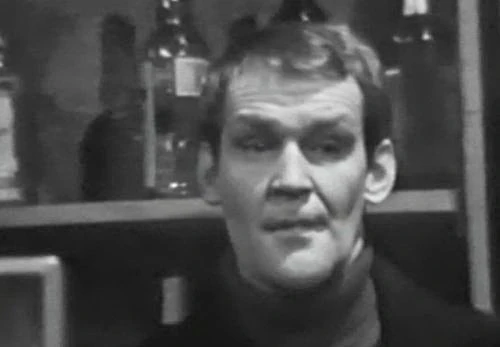
The impact of these two polarised attitudes on each other is the basic theme of the serial. The background is a Scottish city, mainly at night, and the beautiful Scottish countryside. The part of Johnny Maxen, the uncommitted husband, is played by Patrick Allen, who, having played Crane, the Morrocco based canteen owner and part-time smuggler in the ITV series, had the screen appeal the producers wanted. Roddy MacMillan takes the part of the Inspector who is not quite obsessed, but with a little encouragement could be.
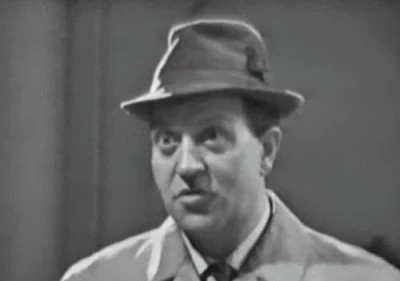
Also among the cast are Petra Davies, John Junkin, Madeleine Christie, Anna Kristen, Jean Muir and Simon Ward.
In the first episode, Julia, with whom Johnny had a daughter but who had died years before in an accident, has been missing for five months. On visiting her flat Johnny discovers the body of another woman. Johnny discovers the girl who died there was called Sandra Bailey. The police believe it was suicide, but Johnny learns she was in the boat the night his daughter drowned. Johnny is then contacted by the police to identify a body, suspected to be his wife, found in the water. It has been in the water for quite some time, but she was strangled not drowned. A witness claims he heard the woman shout "Johnny" on the night of her death, and that person then killed her.
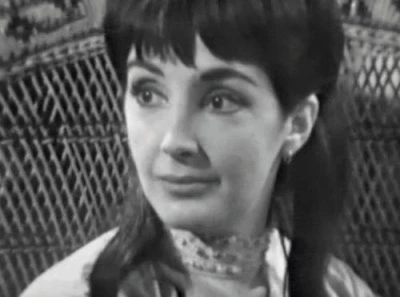
When it came to the repeat showing in 1968, Edward Boyd's wife, Kathleen, known professionally as Katy Gardiner, objected strongly to the series and took legal action to stop it from being repeated in Scotland, claiming that the character of Julia was intended to be identified with her, and was portrayed as "a bad mother, a tart, a lesbian, a drunkard, and a drug addict" and was therefore defamatory to her. She also alleged that the play contained scenes and characters similar to her home and members of her family. Glasgow Sheriff Court granted an interim interdict on the day of the intended broadcast and BBC Scotland was forced to make a last-minute programme change, showing another thriller, Girl in a Black Bikini in its place.
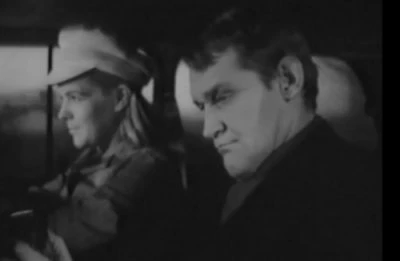
In October 1968 Mrs Boyd was granted a divorce from her husband on the grounds of cruelty but in December the BBC won a ruling that she had failed to prove that the passages in the play, which formed the basis of her complaint, did in fact relate to her. The Sheriff stated, "I am not at all satisfied that a reasonable and unprejudiced member of the public, knowing the circumstances of Mrs Boyd's life which have been revealed in evidence, would be likely to identify her with Julia. There is nothing in the plot of the play to suggest such an identification." The ruling concluded that "it is indeed obvious from the evidence that no one who knows Mrs Boyd well would imagine that Julia is really a representation of her." Despite losing, Kathleen Boyd felt she'd won a moral victory.
The BBC were now free to broadcast the repeat in Scotland but because of the long delay, there were now contractual difficulties which meant that the high cost of the repeat proved prohibitive. The repeat was never shown on Scottish television.
Seen this show? How do you rate it?
Seen this show? How do you rate it?
Published on July 3rd, 2023. Written by Laurence Marcus for Television Heaven.


